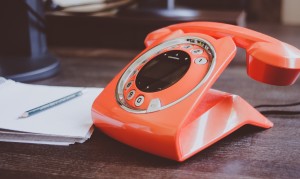Among many others, telephone research is one of the methods I love since it has a number of unique advantages. Naturally, as every method does, it also has a number of disadvantages. Let’s consider some of the pros and cons of telephone research.
Advantages
Accessibility: In 2015, 86% of Canadian homes had mobile phones and 76% had landlines. Further, 99% had a mobile phone and/or a landline. However, only about 83% of the population has access to the internet and only a small minority participate or are even aware of research panels. When it comes to accessibility, the telephone still takes the advantage over online research particularly when you consider that the quality of internet services can vary widely in rural and remote locations.
Quality Control: Unlike self-administered questionnaires, trained interviewers can listen for voice patterns to determine whether participants understand the questions and answers, and whether people are truly paying attention. They can identify when participants are pausing too long, answering too quickly, or not waiting to hear what all of the possible answers are. Interviewers can also determine when a participant is not communicating in their first language and may need more time or additional instructions. All of these are keys to data quality and can affect the validity and reliability of the final outcome.
 Open Ends: Many people find it easier to talk through their opinions rather than type them out. For example, the average person speaks at a rate of about 140 to 160 words per minute. However, the average person types about 40 words per minute. As such, a highly skilled interviewer can elicit far more very detailed and complex opinions from a wide range of people in a much shorter time frame. And, the responses may be more accurate as the interviewer can follow-up with very precise questions.
Open Ends: Many people find it easier to talk through their opinions rather than type them out. For example, the average person speaks at a rate of about 140 to 160 words per minute. However, the average person types about 40 words per minute. As such, a highly skilled interviewer can elicit far more very detailed and complex opinions from a wide range of people in a much shorter time frame. And, the responses may be more accurate as the interviewer can follow-up with very precise questions.
Language Skills: Although most researchers probably have university degrees, only about 26% of adult Canadians have a university degree. This disconnect means that questionnaires are often written for people with higher than average reading skills. Further, about 20% of Canadians have a mother tongue that is not English or French. They may have excellent communication in one or more other languages but not necessarily in English or French. These issues affect how people understand the questions being asked and subsequently the quality of the answers given. By using personal interviewers who are skilled at evaluating the communication skills of participants, some of these problems can be overcome.
Disadvantages
 Disruptive: There’s no other way to put this. Calling someone on the telephone is disruptive. Unlike online and mailed questionnaires, people can’t choose a convenient time to pick up telephone calls. Whether interviewers call during dinner, during TV time, or when people are driving or relaxing on the porch, telephone interviews interrupt people. And sometimes, during dangerous moments. As such, interviewers need to be conscious of how people perceive the interruption and conduct the interview with the utmost of respect.
Disruptive: There’s no other way to put this. Calling someone on the telephone is disruptive. Unlike online and mailed questionnaires, people can’t choose a convenient time to pick up telephone calls. Whether interviewers call during dinner, during TV time, or when people are driving or relaxing on the porch, telephone interviews interrupt people. And sometimes, during dangerous moments. As such, interviewers need to be conscious of how people perceive the interruption and conduct the interview with the utmost of respect.
Call-Screening: For privacy reasons or because they are very busy, some people only accept calls from phone numbers they recognize and let all other calls go to voicemail. Even if a research plan requires an interviewer to contact people ten times before giving up, they might never reach the person. Interviewers will never know if the unanswered calls are truly missed calls versus repeatedly ignored calls. And it’s those ignored calls that are most irritating to people.
I’d love to help you decide if telephone research would suit your needs. Please get in touch!
You might like to read these:
- Top 5 tips for writing a questionnaire people will want to answer
- How to ask gender, age, employment, and income questions on self-completion surveys
Marissa Serrattan is a Project Coordinator at Canadian Viewpoint. She’s an enthusiastic customer focused professional with 10 years of leadership and management experience, and she’s passionate about working in client services. She’s a quallie at heart with expertise in focus groups, bulletin boards, ethnographies, IDIs, and more.




